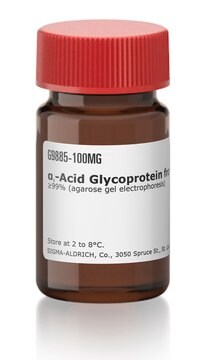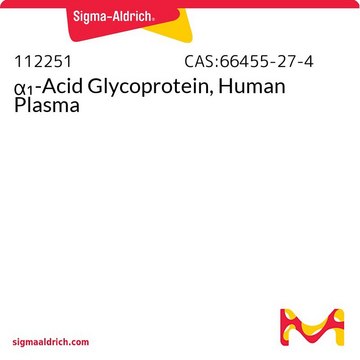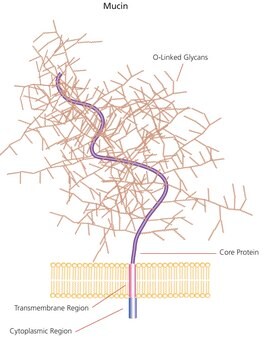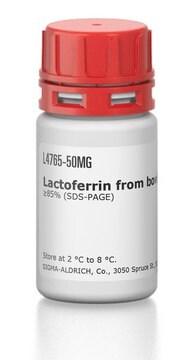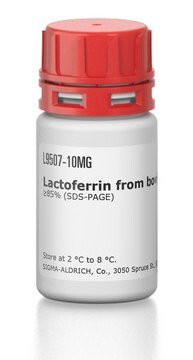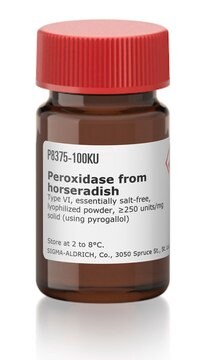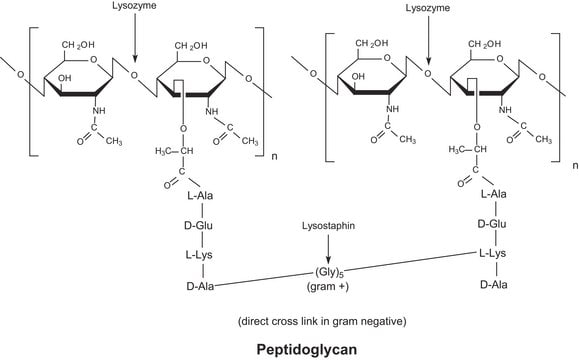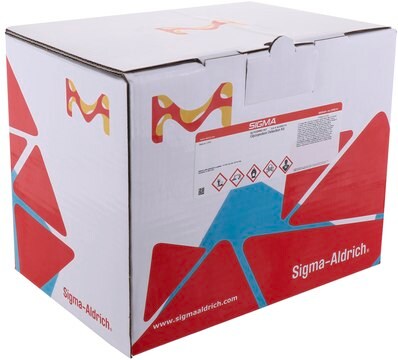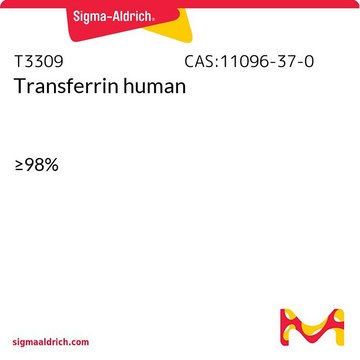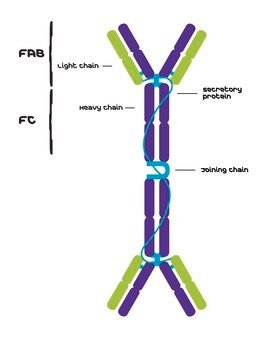G3643
α1-saures Glycoprotein aus Rinderplasma
≥99%
Synonym(e):
Orosomucoid aus Rinderplasma
About This Item
Empfohlene Produkte
Biologische Quelle
bovine plasma
Qualitätsniveau
Assay
≥99%
Form
powder
Methode(n)
electrophoresis: suitable
mass spectrometry (MS): suitable
UniProt-Hinterlegungsnummer
Lagertemp.
2-8°C
Angaben zum Gen
bovine ... ORM1(497200)
Suchen Sie nach ähnlichen Produkten? Aufrufen Leitfaden zum Produktvergleich
Allgemeine Beschreibung
Anwendung
- in mass spectrometry analysis to confirm the presence of Neu5Ac and Neu5Gc distribution in human and bovine AGP respectively
- for pretreating the microvessel before perfusing the MDA-MB-231 cells for tumor adhesion studies
- in the composition of tear model
- as a reference in sodium dodecyl sulphate-polyacrylamide gel electrophoresis (SDS-PAGE)
Biochem./physiol. Wirkung
Lagerklassenschlüssel
11 - Combustible Solids
WGK
WGK 3
Flammpunkt (°F)
Not applicable
Flammpunkt (°C)
Not applicable
Persönliche Schutzausrüstung
Eyeshields, Gloves, type N95 (US)
Hier finden Sie alle aktuellen Versionen:
Besitzen Sie dieses Produkt bereits?
In der Dokumentenbibliothek finden Sie die Dokumentation zu den Produkten, die Sie kürzlich erworben haben.
Kunden haben sich ebenfalls angesehen
Artikel
The use of PNGase Fast denaturing buffer and enzyme yielded results similar to a conventional 20-hour protocol with overnight digest while reducing workflow time to about 1 hour with a 15-minute digest.
Unser Team von Wissenschaftlern verfügt über Erfahrung in allen Forschungsbereichen einschließlich Life Science, Materialwissenschaften, chemischer Synthese, Chromatographie, Analytik und vielen mehr..
Setzen Sie sich mit dem technischen Dienst in Verbindung.